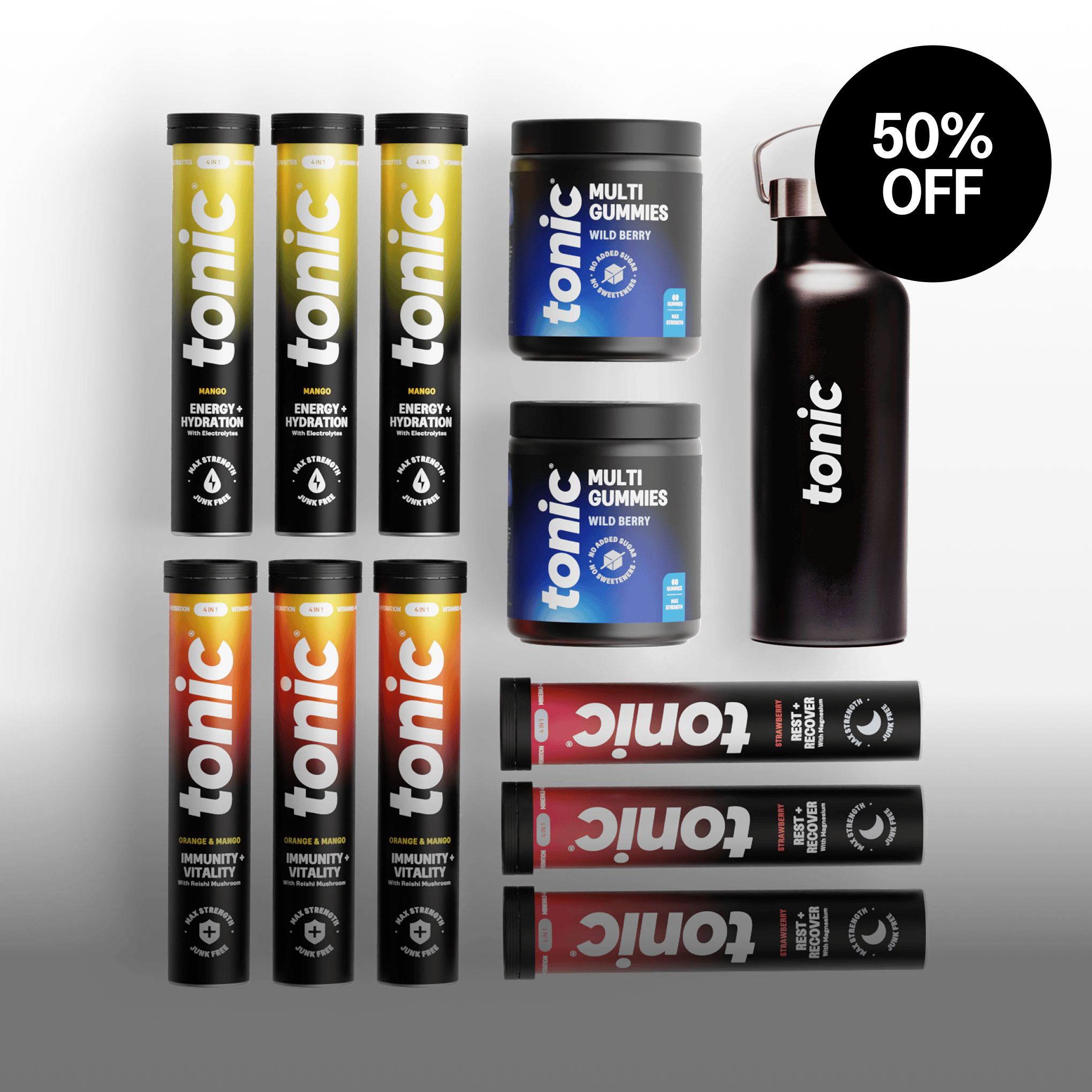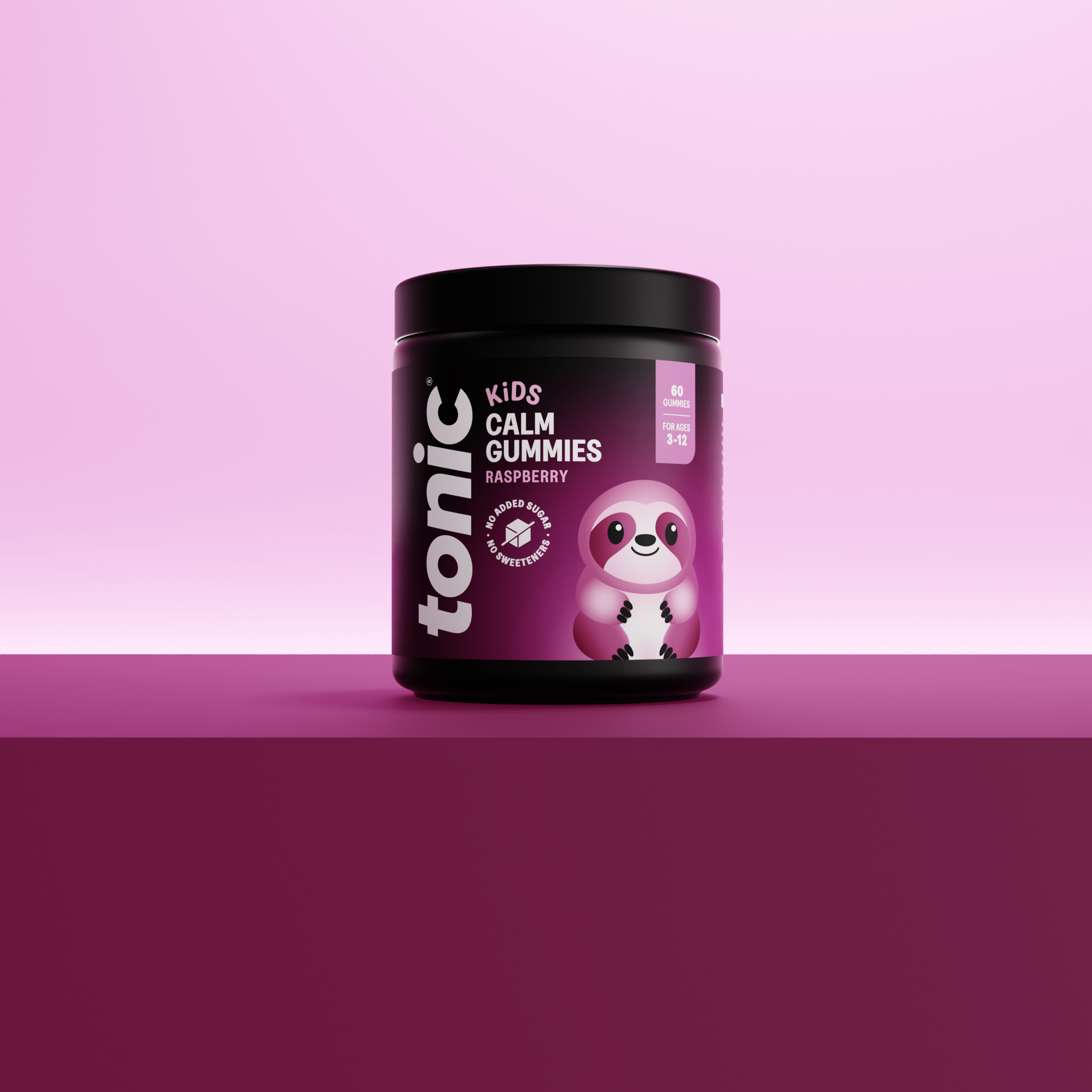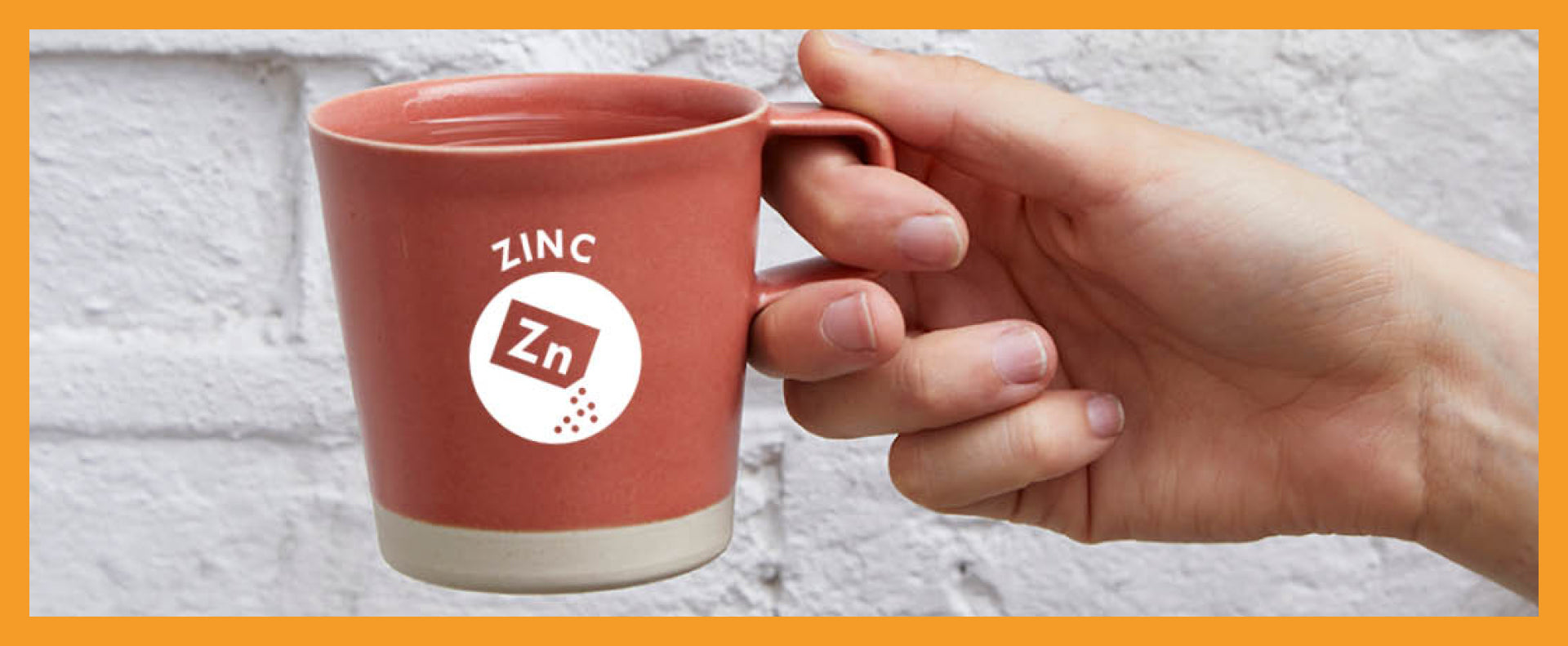This week, we featured in The Telegraph as 1 tip inside their "10 top tips to support your immune system to fight off coronavirus".
Currently there is no cure for the coronavirus (COVID-19), but what we do know is that to fight a virus, if you don't have a specific anti-viral or a vaccination for it, you have to rely on your immune system, because this is all that we have.
You can make sure that your immune system is strong by living healthily, and there are plenty of natural ways to ensure that your body is fighting fit. We have selected the top ten tips for supporting your immune system below.
“‘This is a serious infection and no amount of lifestyle intervention will make you invincible,” says Dr Jenna Macciochi, an immunologist at the University of Sussex, whose book is out on April 16th. “But there are plenty of small things you can do that may strengthen your immune system.”
- Eat a colourful Mediterranean diet
Eating a low-carbohydrate Mediterranean diet rich in different coloured fruits and vegetables, will give you the best chance of getting the wide variety of antioxidant and anti-inflammatory phytonutrients your body needs to fight infection. 70% of your immune system comes from the gut. So, the more colours you include, the more nutrients you get, alongside fibre, beans, pulses, lentils, herbs, spices and a varied diet - reducing your sugars and carbohydrate intake too can help.
- Don’t lose sleep over it
“Adequate sleep is the bedrock of your whole immune system,” says Dr Macchiochi. “If you’re not sleeping, no other lifestyle measure will make such difference because while we sleep the hormone melatonin stimulates new immune cells.”
- Get enough vitamins and minerals:
a) Vitamin D
Pooled data from 16 clinical trials involving 7,400 people show that taking vitamin D supplements reduces the risk of experiencing at least one respiratory infection including influenza and pneumonia by a third with positive benefits seen within 3 weeks. In those with low vitamin D status, the protection was even greater reducing the risk of respiratory infection by almost a half compared with placebo. Another analysis published in 2017 in the British Medical Journal looked at 25 studies and involved around 11,000 people from 14 countries. It found that vitamin D supplements reduced the risk of acute respiratory infections by 11 per cent compared with placebo.
b) Zinc
“We can’t make zinc in our bodies, we have to get it from our diets,” says Dr Macciochi. “Yet it plays a role in hundreds of reactions in our bodies and is extremely important to fighting infection. There’s some evidence that taking extra zinc in the winter months is helpful at preventing infection but zinc is not something to take all the time as it can cause toxicity.” Food sources include red meat, shellfish, legumes, seeds and dark chocolate.
c) Vitamin C
China might be running out of oranges but there’s little evidence showing vitamin C prevents infection. “What the evidence does show is that once a cold has hit, vitamin C can shorten the duration of symptoms,” says Dr Macciochi. “Our immune cells have a high need for vitamin C when they are working hard to fight infection, so if you find yourself with symptoms, this is the time to start dosing up on vitamin C”. Oranges aren’t the only source mind, it’s also kiwi fruits, red peppers, spinach, grapefruit, cauliflower and Brussel’s sprouts as well as organ meats. For high high doses, there’s Tonic Health (20 sachets for £11.99 from tonichealth.co), which contains more vitamin C, zinc and vitamin D than comparable products on the market.
- Move around throughout your day – and build some muscle
Yet another reason to take that lunchtime walk. “Regular and often is the key for exercise and immunity,” says Dr Macchioci. “Movement throughout the day is essential for your lymphatic system, which relies on movement and muscle for stimulation. It’s essential to helping your immune cells perform their surveillance function of moving around the body fighting germs that might be trying to get inside your tissues.” And while it’s not exactly quick, strength training is essential to immunity as you age. “Muscle produces chemicals that work on our thymus gland [where immune cells are made - see above] and can help its functioning as we get older.”
- That 'two litres of water' rule – heed it
If you get dehydrated, it can change the mucus layer in your respiratory tract and your digestive tract that has antibodies that trap germs and stop them getting into your cells, Dr Macchiochi points out. Tea and coffee are diuretics, so they don’t count, but sipping on a Tonic Health – that would be a great swap-in.
- Eat sourdough bread – and other gut-friendly fibre
“Your gut bacteria – or microbiome – is crucial to immunity,” says Dr Macchiochi. “This breaks down your food in the digestive tract and produces metabolites known as ‘post-biotics’ that are helpful for our immune systems.” But keeping your gut happy doesn’t only involve eating fashionable fermented foods such as kimchi, sauerkraut, kombucha and kefir. Sourdough is one of the healthiest things you can eat for your microbiome and a great source of fermented fibre which as the best of both worlds, she explains. “Look for the slow-fermented variety from artisan bakers ideally made with a more ancient grain such as spelt, or einkorn.” Other gut-friendly fibres include fruit and vegetables, whole grains and legumes.
- Add crushed garlic to your food
Those delicious bulbs of heaven contain a compound called allicin that has been well studied for its antibacterial, anti-inflammatory and antimicrobial effects, explains Dr Macchiochi. “But this is only released when the garlic has been crushed and left to sit for a while, before use in cooking.” Meanwhile, some studies have tried to take this active ingredient out of garlic and make it into a supplement, but they haven’t been shown to be effective.
- Follow the advice … whatever your age
This is not the time to ignore public health messages, it is so important to stay updated and aware of the status of coronavirus, without going into a panic. The NHS is the best and most trusted resource.
- Wash your hands with plenty of water
There’s handwashing and there’s handwashing during a global pandemic. When you wash your hands, it’s more about the water than the soap. “Warm water is better but getting a lot of water over your hands whilst you’re rubbing them together is much more important than the amount of soap used’ Indeed, unless it’s anti antivirucidal, an antibacterial soap won’t kill the virus, anyway. As for gels, look for 60 per cent alcohol, as this will have antibacterial and antivirucidal activity (but they won’t work at all if your hands are heavily soiled or greasy).
- Don’t stress
Stress leads to the release of cortisol, which is an immunosuppressive, and often if you are stressed you may not be eating as well, or sleeping as well.
Content taken from the original article in The Telegraph here.







1 comment
Belen Lemann
Dear tonichealth.co owner, Thanks for the well-researched and well-written post!
Leave a comment
All comments are moderated before being published.
This site is protected by hCaptcha and the hCaptcha Privacy Policy and Terms of Service apply.